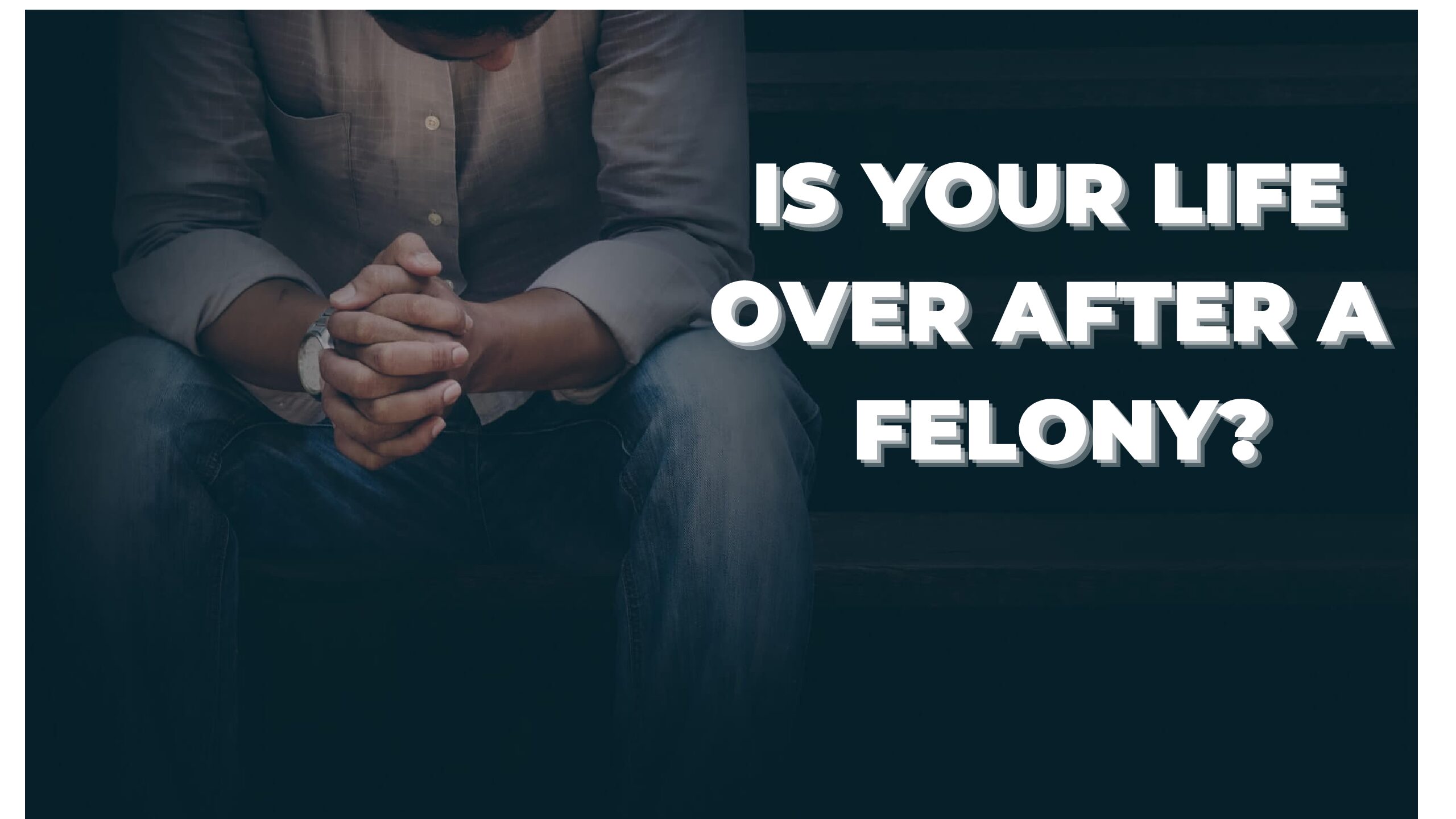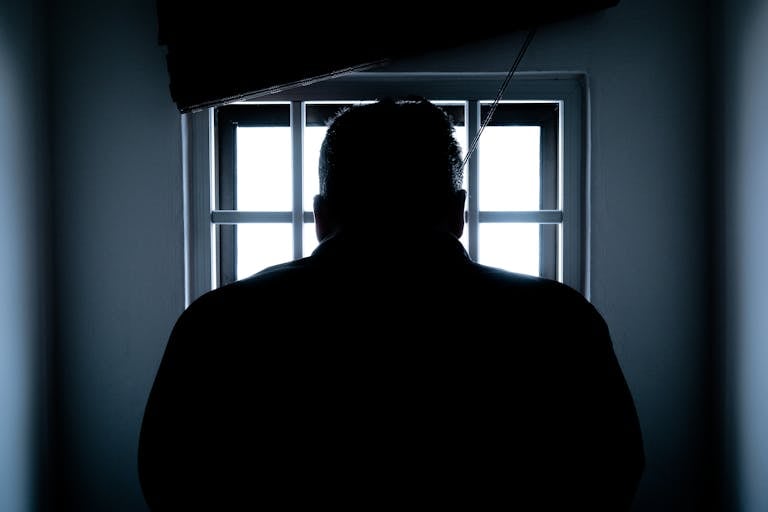IS YOUR LIFE OVER AFTER A FELONY?
Multiple times, my court-appointed attorney asked me if I understood what I was agreeing to on that fateful day when leaving the courtroom, and exactly what it all meant.
Multiple times I said yep, I understood. But truth be told, nope, I had no effing clue.
I mean, I was just overly happy to leave the courtroom in one piece and not in shackles. Little did I know what was going to happen in my life for years to come after signing off on those documents officially declaring me (branding) as one: convicted felon.
And I don’t blame counsel for my inability to grasp the severity of the situation either, as it was not their fault.
I don’t believe anybody would truly understand the ramifications of their verdict, until years to come seeing what the collateral damage it has on one’s life after a felony charge. Allow me to answer the interesting question IS YOUR LIFE OVER AFTER A FELONY?
IS LIFE OVER AFTER A FELONY CONVICTION?
Contrary to popular belief, no, life is not over for someone after being convicted of a felony. Nor is it the end in any way. It does however, absolutely complicate daily living matters for the individual as they lose and give up many rights, due to the inherent restrictions placed on them to protect public welfare.
A felony conviction can affect civil rights, including the right to vote and serve on a jury. While people tend to think that their rights are always protected, this is unfortunately not true.
A common ideology is that your life is “ruined” with a criminal record, and you will never amount to anything.
Although the conviction may interfere with your career path and bar you from certain occupations, I would hardly say that life is not worth living due to a conviction. While it is true, facing a criminal charge can create obstacles in areas such as employment and relationships.
Ironically, the vast majority of people that say being a felon automatically ruins your life, are not even felons. They are just telling you what they have heard, picked up, and have been trained to believe (and judge you on) from others’ hearsay.
Aside from certain rights and liberties that are lost, the stigma of a criminal conviction – especially that of a felony – which individuals who have had no exposure to the criminal justice system view as very bad – often goes overlooked;
it is important to be prepared of societal judgement and the impact it has on one’s life. A history of criminal activity can hinder employment opportunities and affect relationships.
While this may not be a serious consideration, having a felony on your record may affect your social interactions when people find out. Should you be honest? Will it be worse if friends and family find out from other sources? How will they react?
The answers to these questions are of course case-specific as not all felonies are treated the same and created equal. Sadly, some people may always be uncomfortable forming relationships with people that have criminal records regardless of the crime.
Individuals with felony convictions often face significant barriers when attempting to secure housing, often failing background checks which exacerbate their struggles after serving time.
The Real Truth Behind a Felony Conviction
So to summarize all this great information, I would like to reiterate from my own experience, that having a felony conviction on your record and in your life sucks.
While it does not warrant (bad word) taking my own life, it does bite the big one, as it has done a marvelous job of making everything in life overly “complicated”.
The process and challenges of getting civil rights restored can be daunting, often involving systemic barriers that complicate reintegration into society.
HOW DOES A FELONY CONVICTION AFFECT YOUR LIFE?
Felonies are the most serious criminal offenses you can commit, which means a conviction will undoubtedly change your life forever, with lifelong lasting effects on your ability to find employment, obtain housing, and maintain personal relationships.
A felony conviction can also lead to enhanced penalties for future criminal offenses. Being found guilty can affect a person’s eligibility for federal assistance and employment opportunities.
Citizens of the United States are entitled to fundamental rights and liberties. Among these are the freedom of speech, religion, the right to bear arms, the right to vote, etc.
A person convicted of a felony, however, loses many rights, as he or she will no longer be able to vote, hold a public office, serve on a jury, and own or possess firearms just to name a few.
- Renting and Leasing — Convicted felons often struggle to rent a place or secure housing after their release. Much like employers, landlords often conduct background checks on potential tenants. Some of them may not be willing to lease or rent to someone with a criminal record, and there are no rules or laws that prevent them from doing so (Fair Housing Laws my ass).
- Child Custody – If you have criminal record, it could affect your rights with regard to child custody (especially if it involved domestic abuse or some other act of violence). Even a misdemeanor charge could lead to the loss of child custody rights, especially if it involved your family.
- Immigration Status – If you’re a foreign national, a criminal record can keep you from getting a green card. It can even change your immigration status or hinder your ability to become a naturalized citizen of the United States. You can also lose your job and be deported, even if you’re guilty of a misdemeanor offense.
- Travel Restrictions – This may come as a surprise, but traveling outside the country can be very difficult for convicted felons. Passports are required for international travel and the government can reject your passport application if they see that you were convicted of a felony in the past. Your destination country may also deny you a visa for the same reason. Jail time is one of the consequences individuals may face following a felony conviction, alongside the impact it can have on various aspects of life, such as travel restrictions and social standing.
- Subsequent Crimes – If you’re facing new criminal charges with an existing criminal record, you could face more severe penalties if you are convicted or sentenced.
- Gun Rights – Felons also lose the right to bear arms. This is a federal law, often mirrored by the state of conviction, and it applies whether or not your crime was violent.
- Professional Licenses – A felony conviction may also prevent you from working in a specific field or obtaining a professional license. State boards require applicants for licenses to practice medicine, law, or real estate to be of sound moral character, which means that having a felony on your records could bar your eligibility
- Employment – It can be very difficult to land a job with a felony on your record. Most employers are weary about hiring someone with a criminal record, especially if it is for a violent crime or sex crime. Granted, some positions are easier for felons to get, but those are often trades or minimum-wage positions. Sex offenders face heightened challenges when trying to reintegrate into society after incarceration, significantly compounding the barriers to finding housing, employment, and restoring civil rights.

Once again, all of these challenges will make things much more difficult and complicated for the individual with a felony conviction, as you have to work TWICE as hard to be a productive member of society, but your life is far from over.
IS LIFE WORTH LIVING AFTER A FELONY CONVICTION?
Apologies as I am a bit biased, however, for purposes of the question, I will try to answer as impartial as a middle-aged convicted felon could be (and hopefully you do not discriminate against me for being a convicted felon – (ironic isn’t it).
Absolutely, yes, life is definitely still worth living even after a felony conviction. You see, there are certain similarities between the life of a “regular” person to that of a convicted felon: and that is your life is and becomes what you make of it.
There is also a bit of common sense that comes into play, because being a felon magnifies everything else. Losing voting rights is significant and detrimental to individuals seeking to rebuild their lives after a criminal record.
Meaning, if you are the kind of person that is complaining all the time and thinks that life is terrible, than it will get much worse for you with a felony. If you are someone who looks and finds for ways to make something positive come out of it, than being a felon will not affect things as much.
If you create your own opportunities and luck in this world, and are not overly dependent on others for assistance, then being a convicted felon is probably not going to end your life.
Criminal prosecution can have long-lasting effects on various aspects of life, such as employment and relationships.
It does significantly affect those that are career employees and do not believe that they can work for themselves by starting some kind of business.
Many employers are skeptical or impose strict background checks, often leading to automatic rejections of applicants with a criminal record.
That said, finding employment and renting a house are about the only things that is going to be more challenging and complicated because you are asking someone else to do something for you.
The lifelong consequences of a felony conviction affect various aspects of an individual’s life, including social stigma, loss of civil rights, employment barriers, and challenges in pursuing education.
Everything else that comes with being a felon is arbitrary. Not being able to vote in some states as a felon is infuriating as you want to have your voice matter, however, and in all reality, it is not going to change your life.
Becoming as self-sufficient as possible and not depending on anyone to provide anything for you – employment, housing, food, and otherwise – will change your life. And that is what you focus on.
Many “criminals” have some sort of skill or talent that could be used in a positive way; most could do something in the way of marketable skills that can be transferred over to some sort of business that allows them to be self-employed.
IN CONCLUSION
Yes, a felony conviction can and will wreak havoc on your life (at times). My God, it can wreak havoc. But you must keep things in perspective and check, and live this life. So, one last time I will say – NO! A felony does not mean your life is over and is still absolutely worth living.
You may also want to check out…







